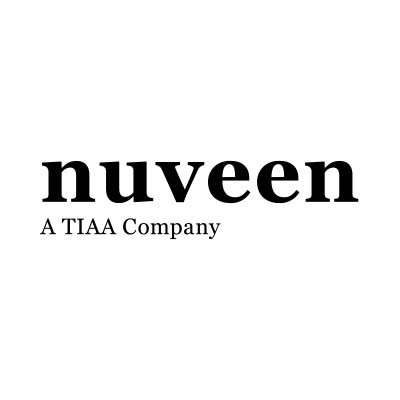Tripoli Chauffeur Services for business travellers
Global availability, Premium experience, Dedicated 24/7 support
Set up your HYRYDE Business Account and get started today
Tripoli Chauffeur Services for business travellers
Global availability, Premium experience, Dedicated 24/7 support
Set up your HYRYDE Business Account and get started today
Get your executives moving with HYRYDE
Luxury chauffeur service in Tripoli
Introduction to Tripoli (Tripoli District, Libya)
Welcome to Tripoli (Arabic: طرابلس, Ṭarābulus), the capital city and largest urban center of Libya, located on the Mediterranean coast in the northwestern part of the country. In fact, Tripoli is renowned for its rich and ancient history, dating back to its founding by the Phoenicians as Oea, and later becoming a significant city in the Roman, Byzantine, Arab, Ottoman, and Italian colonial eras. Furthermore, this historic metropolis is characterized by its prominent Red Castle (Assaraya al-Hamra), the bustling Old City (Medina) with its traditional souqs and mosques, Martyrs’ Square (formerly Green Square), and its distinctive Italian colonial architecture. However, it is of paramount importance to state that Tripoli and Libya as a whole have been profoundly affected by prolonged periods of instability and conflict, which have had a severe impact on safety, infrastructure, heritage, and daily life.
Additionally, Tripoli historically offered a wealth of cultural and historical sites, though their current state and accessibility are highly uncertain due to the ongoing security situation. For example, the Red Castle (Assaraya al-Hamra), a vast palace complex overlooking the harbor, has traditionally housed the National Museum (its current status and collection integrity are major concerns). The Old City (Medina) is a labyrinth of narrow alleyways, historic mosques like the Gurgi and Karamanli Mosques, traditional houses (such as the Karamanli House Museum), and vibrant souqs. The Arch of Marcus Aurelius stands as a significant Roman-era landmark. Martyrs’ Square has long been a central public space. The city also features numerous examples of Italian colonial-era architecture. The impact of recurring conflicts on these sites, including potential damage and neglect, is significant and makes any form of casual tourism unviable and extremely dangerous.
Consequently, any travel to Tripoli, including via Mitiga International Airport (MJI) (which has been the primary functioning airport but is subject to disruptions) or the largely non-operational Tripoli International Airport (TIP), or by road from other parts of Libya or neighboring countries (which is exceptionally hazardous), must be approached with extreme caution and only for absolutely essential purposes by individuals or organizations with robust security measures, comprehensive local knowledge, and official permissions. Specifically, any transport coordination services would operate under the most severe constraints, prioritizing safety and security above all other considerations in a highly volatile and dangerous urban environment.
This information is provided for a general historical and geographical overview. Travel to Tripoli for tourism or any non-essential purpose is unequivocally advised against by virtually all foreign governments due to the extreme risks involved, including armed conflict, crime, and terrorism. Any essential travel must be undertaken with comprehensive security assessments, professional guidance from security experts, and adherence to all international advisories and local authority permissions.
Why Choose Our Premier Transport Coordination Service in Tripoli (Context of Essential, Authorized, and Extreme High-Risk Environment Travel Only)
Selecting a transport partner for any essential travel to Tripoli, the capital of Libya and a city that has frequently been at the center of conflict and instability, demands an absolute and overriding focus on security, real-time local intelligence, reliability under extreme conditions, and drivers with profound experience in navigating high-risk urban environments. Our service, if and when operational for strictly essential, authorized, and meticulously planned travel (e.g., for accredited international diplomatic missions, critical humanitarian aid organizations with established security protocols, or vital infrastructure projects with governmental backing and comprehensive security details), is built upon these non-negotiable principles.
Naturally, our premier transport coordination service, within such an extreme high-risk and volatile context, would strive to offer distinct advantages:
Professionalism and Extreme Local Knowledge Under Duress (Context-Dependent and Security-Led)
Importantly, any team or local partners we would engage with must be highly experienced professionals, possessing intimate, current, and verified knowledge of Tripoli, the operational status of Mitiga International Airport (MJI) for authorized flights (Tripoli International Airport – TIP, being largely non-operational), and the exceptionally perilous nature of all road networks within the city and its environs. We would only work with extensively vetted local operators who prioritize passenger safety and security above all else, are adept at navigating complex and rapidly changing security situations (including the presence of various militias and checkpoints), and who operate in strict accordance with international safety protocols and any existing local deconfliction mechanisms. This service is exclusively for supporting critical, authorized missions by organizations equipped to manage operations in active conflict or post-conflict zones, and is not available for any form of tourism or non-essential travel.
Consequently, our experience in challenging environments aims to ensure the most secure and logistically sound travel feasible under extreme circumstances. Our professional coordination would be entirely driven by security considerations and in constant liaison with the client’s security advisors and relevant de-conflicting authorities.
Appropriate and Secure Vehicles Suitable for a Conflict/Post-Conflict Urban Environment
Additionally, travel would be facilitated using appropriate, well-maintained, and robust vehicles, very likely armored or reinforced, depending on the specific threat assessment and client requirements. Vehicle selection would prioritize occupant protection, reliability, and low-profile movement where necessary. Advanced communication equipment (e.g., satellite phones, real-time tracking) and emergency medical supplies would be standard for any coordinated movements.
Punctuality and Extreme Adaptability for Airport Transfers (MJI – If Operational for Authorized Flights) and Essential Movements
Punctuality, while always a professional goal, must be secondary to and balanced with extreme adaptability and adherence to security protocols in a volatile environment like Tripoli. For any transfers involving Mitiga International Airport (MJI) – if it were to handle any specially authorized civilian or humanitarian flights – or for pre-agreed essential movements within or around the city, meticulous planning would be undertaken. However, all itineraries would be subject to immediate alteration or cancellation based on real-time security assessments, local advisories, and on-the-ground conditions. Flexible and responsive contingency planning is critical for survival and mission success.
Highly Personalized and Secure Transport for Authorized Essential Travel Only
Given the context, all services are exceptionally personalized and focused on the security and logistical needs of authorized travelers undertaking essential, officially sanctioned missions (e.g., diplomatic engagements, critical humanitarian aid operations, vital infrastructure support). This includes secure airport meet-and-greet (if applicable and deemed safe by security advisors), direct transfers to pre-vetted secure locations (e.g., fortified compounds, international organization offices, specific government ministries), and transport for carefully planned and authorized movements, invariably requiring security escorts or specific convoy procedures coordinated with relevant de-conflicting bodies and vetted local security providers. We would only work with organizations that have their own comprehensive security infrastructure, necessary permissions from all relevant authorities, and a clear, legitimate, and essential purpose for travel that has been thoroughly risk-assessed and approved at the highest levels.
Safety and Security-Driven Navigation in an Active and Complex High-Risk Urban Zone
Finally, and most importantly, the safety and security of all personnel involved are the absolute, non-negotiable overriding consideration. Our coordination with any local transport providers would be contingent on their proven ability to operate under stringent security protocols, their access to reliable and current security information (including militia activity, checkpoint status, and no-go zones), and their capacity for secure, low-profile, and discreet movement through complex and often unpredictable urban and regional areas. This service is not for tourism or any form of non-essential travel. All travel to Tripoli and Libya as a whole is extremely dangerous and potentially life-threatening.
We strongly reiterate that travel to Tripoli is subject to the most severe official travel advisories against all travel from most governments. This information is for hypothetical essential travel scenarios only and does not constitute an endorsement or encouragement of travel to the region.
Explore Tripoli, Libya’s Historic Capital on the Mediterranean (Subject to Current Conditions and Extreme Caution)
Tripoli, the capital of Libya, is a city with a rich and ancient history, stretching back to Phoenician times as Oea. It later became a significant Roman city and has layers of Ottoman and Italian colonial influence in its architecture and urban fabric. Its Old City (Medina) and the Red Castle (Assaraya al-Hamra) are key historical landmarks. However, due to prolonged periods of conflict and instability in Libya, Tripoli’s security situation remains highly volatile, and its infrastructure and heritage sites have been significantly impacted. Access for tourism is currently impossible and strongly advised against. The following information is provided for historical and cultural context only.
All travel to Tripoli is subject to extreme risk due to active conflict, political instability, and a severe humanitarian crisis. Heed all official travel advisories from your government, which almost certainly warn against all travel to Libya.
Transfers to Tripoli: Via Mitiga International Airport (MJI) – Current Status Highly Uncertain and Limited for General Civilian Travel
Access to Tripoli is exceptionally difficult and dangerous:
- From Mitiga International Airport (MJI): Located east of the city center, MJI has been the primary functioning airport for Tripoli in recent years, as Tripoli International Airport (TIP) has been largely out of commission due to conflict damage. However, MJI itself has also been subject to closures and disruptions due to security incidents. Any flights operating are likely to be limited, primarily domestic or to a few regional destinations, and subject to frequent changes.
- From Tripoli International Airport (TIP): Located south of the city, TIP has been mostly non-operational for regular civilian flights for an extended period due to severe damage sustained in conflicts.
- Road Travel: Overland travel to Tripoli from other parts of Libya or neighboring countries (e.g., Tunisia) is exceptionally dangerous due to active conflict zones, insecurity, checkpoints controlled by various armed groups, and damaged infrastructure. Such travel should not be undertaken for non-essential purposes and would require extensive professional security measures even for critical missions.
Our transport coordination, if ever feasible for strictly essential, authorized, and highly secured travel by specialized personnel (e.g., diplomatic or humanitarian missions with robust security details), would prioritize safety and security above all other considerations.
Key Historical and Cultural Sites (Current Condition and Accessibility Severely Impacted)
Tripoli historically boasted numerous significant landmarks, but their present state is unknown, and they are generally not accessible or safe for tourism:
- The Red Castle (Assaraya al-Hamra): A vast historical complex overlooking the harbor, traditionally housing the National Museum (Jamahiriya Museum), which contained important archaeological collections. Its current state and the safety of its contents are major concerns.
- The Old City (Medina of Tripoli): A historic walled city with narrow, winding alleyways, traditional houses, souqs (markets), and historic mosques such as the Gurgi Mosque and the Karamanli Mosque. The integrity of the Old City has been threatened by neglect and conflict.
- Arch of Marcus Aurelius: A well-preserved Roman triumphal arch dating to 165 AD, located near the Old City.
- Martyrs’ Square (formerly Green Square): A large public square in the city center, historically a focal point for public gatherings and events.
- Italian Colonial Architecture: Many buildings in the city center reflect the Italian colonial period (early 20th century), particularly around Martyrs’ Square and along the Corniche.
- Karamanli House Museum: A historic Ottoman-era house museum showcasing traditional Tripoli lifestyle (current status unknown).
Impact of Ongoing Conflict and Instability
It is imperative to understand that Tripoli has been a central arena for Libya’s conflicts since 2011. The city has experienced intense fighting, airstrikes, political divisions, and a severe deterioration in public services and security. The humanitarian situation has often been critical. Cultural heritage sites are at extreme risk from direct conflict, looting, and neglect. The presence of multiple armed groups makes the security environment unpredictable and highly dangerous.
Travel for tourism or any non-essential purposes is unequivocally advised against. This information is provided for general historical and cultural context only and does not imply that travel is safe or feasible.
Nearest Airports and Ports for Tripoli
Tripoli, as the capital of Libya, historically had two main airports, though their operational status has been severely and frequently disrupted by conflict. It is also a major Mediterranean seaport.
- Mitiga International Airport (MJI): Located approximately 8 kilometers (5 miles) east of Tripoli’s city center. In recent years, MJI has been the primary functioning airport for Tripoli, handling most of the limited domestic and international flights that have been operating. However, it has been repeatedly targeted during conflicts and has experienced numerous closures and disruptions. Its operational status can change rapidly.
- Tripoli International Airport (TIP): Located about 25-30 kilometers (16-19 miles) south of Tripoli. This was formerly Libya’s main international airport but suffered extensive damage during fighting in 2014 and subsequent conflicts. It has been largely non-operational for regular commercial civilian flights for extended periods, with efforts to rebuild and reopen being consistently hampered by instability.
- Port of Tripoli: A major seaport on the Mediterranean, historically vital for Libya’s trade, commerce, and as a passenger terminal for some ferry services. Its operations, particularly for any non-essential or passenger-related activities, are also heavily influenced by the security situation and prevailing governance in the city.
It must be stressed that all travel to and within Libya, including Tripoli, is currently subject to extreme risk. The status of airports, ports, and transport routes can change rapidly and without warning due to the volatile security situation. This information is for general knowledge only and does not constitute travel advice.
Booking Your Essential Tripoli Transportation (Subject to Extreme Caution, Official Advisories, and Comprehensive Security Protocols)
We designed the booking process for any essential and officially authorized Tripoli transport coordination to prioritize safety and security above all else, given the extremely challenging, volatile, and high-risk environment due to the ongoing conflict and instability in Libya. Our services, if and when operational for such specific, vetted purposes (e.g., accredited diplomatic missions, international humanitarian organizations with their own robust security frameworks, critical infrastructure support by authorized international personnel with comprehensive security arrangements and necessary permissions from all relevant Libyan authorities), would focus on providing the most secure and reliable transfers possible. This might involve highly secured transfers from Mitiga International Airport (MJI), if any authorized flights are operating under special permissions, or for pre-arranged, secure movements within Tripoli, always in line with current safety intelligence and official permissions from all de facto and de jure authorities.
Travel to Tripoli for tourism or any non-essential purpose is unequivocally advised against by virtually all foreign governments and international organizations. This information is purely for hypothetical scenarios involving essential, life-sustaining, or officially sanctioned travel by organizations equipped and authorized to operate in such extremely hazardous environments.
Next, for any such authorized essential travel, your organization must provide comprehensive details of the mission, all necessary security clearances from all relevant parties, exact logistical requirements, robust contingency plans, and proof of all necessary permissions from all relevant authorities. This would include dates, times, flight details (if applicable and verified for MJI), precise pickup/drop-off locations within secure perimeters, number of personnel, and specific vehicle or security needs (e.g., armored vehicles, security escorts, detailed route planning with deconfliction measures). Subsequently, if feasible and deemed operationally viable under strict, independent security assessment by professionals specializing in high-conflict zones, a tailored service plan would be developed in close consultation with your organization’s security managers and advisors, and a transparent quotation provided. Then, upon confirmation and final security approval from all relevant stakeholders, your transport would be meticulously scheduled with specialized local operators highly experienced in high-risk urban environment logistics. Ultimately, our commitment in such a scenario is to support critical, essential missions by providing the safest and most reliable transport solutions possible within an active and complex conflict/post-conflict zone. This is not a service for general inquiry or non-essential travel.
Call HYRYDE today to get a Premium Chauffeur Car Service.
At HYRYDE, booking for corporate customers can be a few clicks away by using our online booking. Whether you’re on desktop or on-the-go, you have the same control features wherever you are. Manage your business from a desktop, tablet or mobile.
Frequently asked questions
We work with trusted manufacturers
Get started today
Set up your HYRYDE Business Account and get started today.
Fill out the form below to get in touch with our team.
Wherever you go, enjoy full control
of your travel experience
Tailored, luxury transport at your fingertips.
Let us handle the details while you focus on what matters most.
Get started today
Set up your HYRYDE Business Account and get started today.
Fill out the form below to get in touch with our team.














